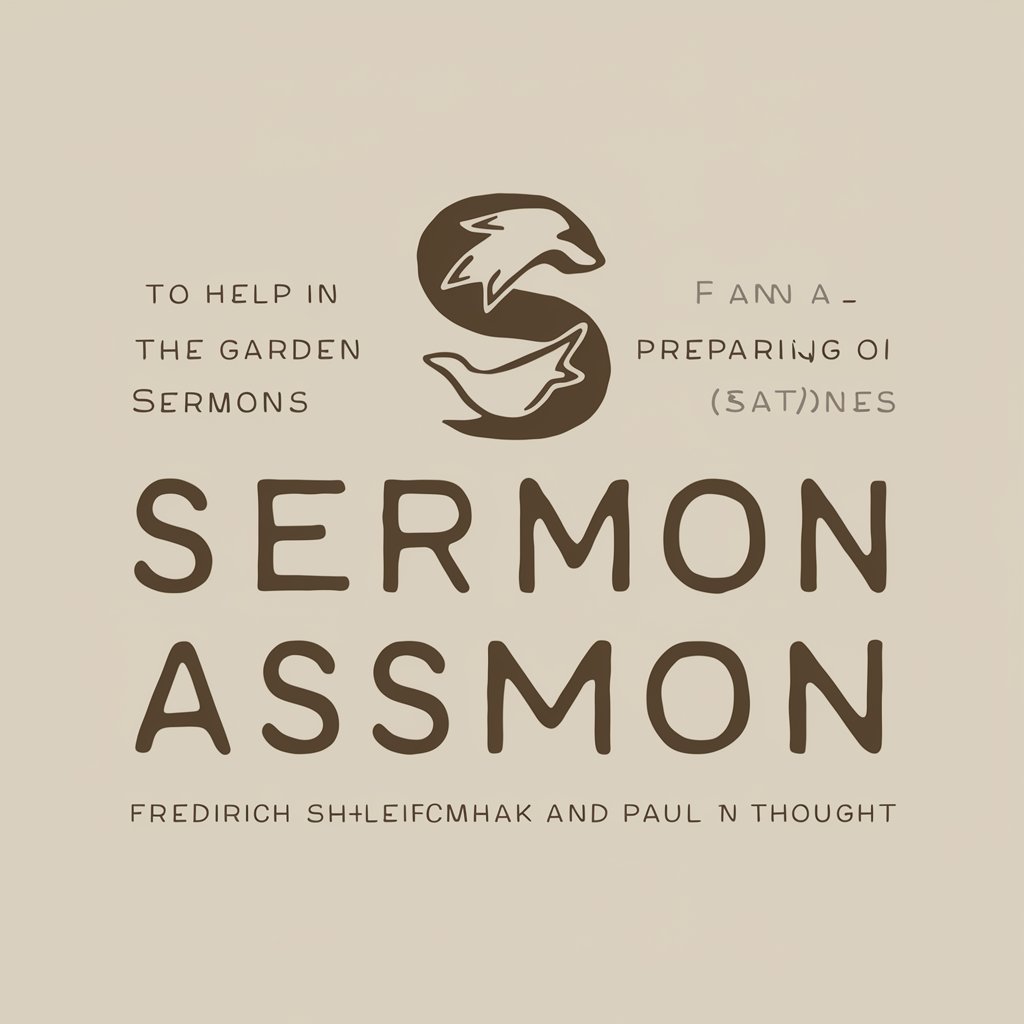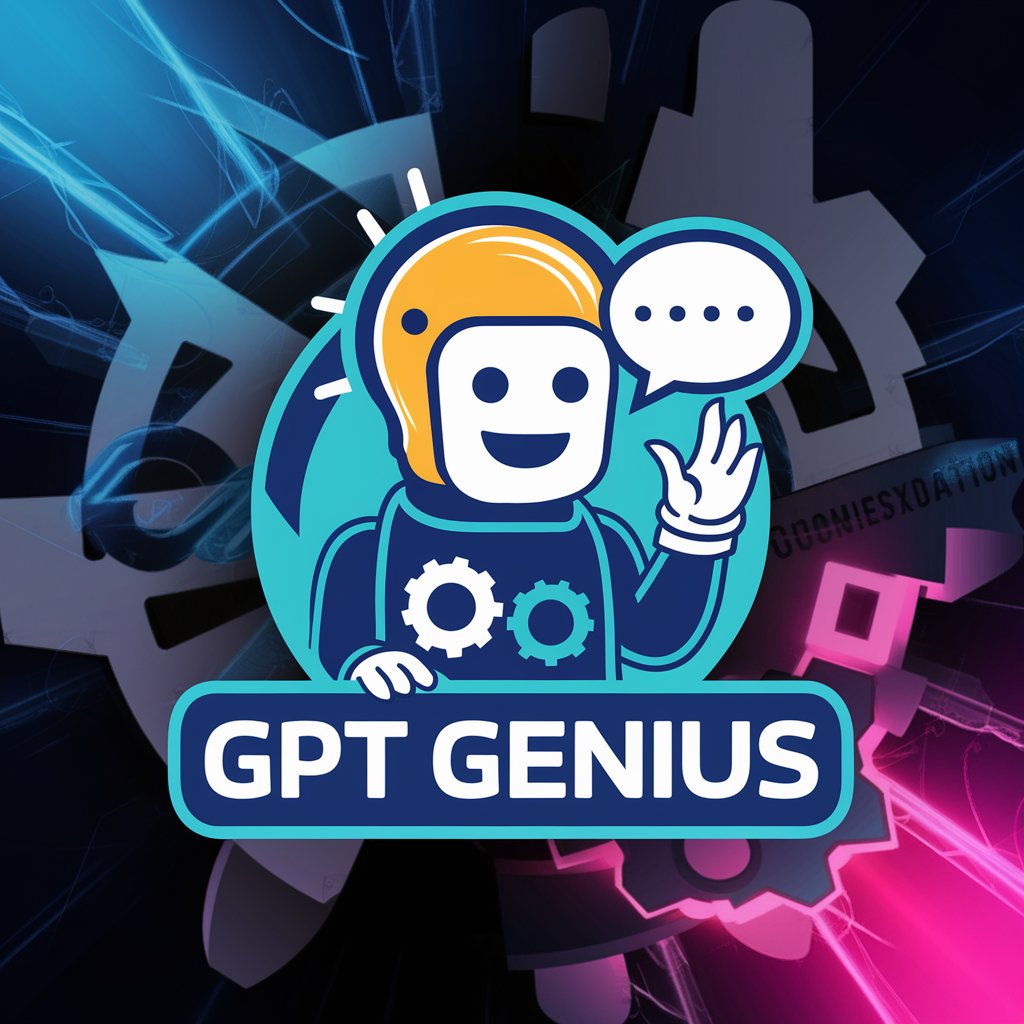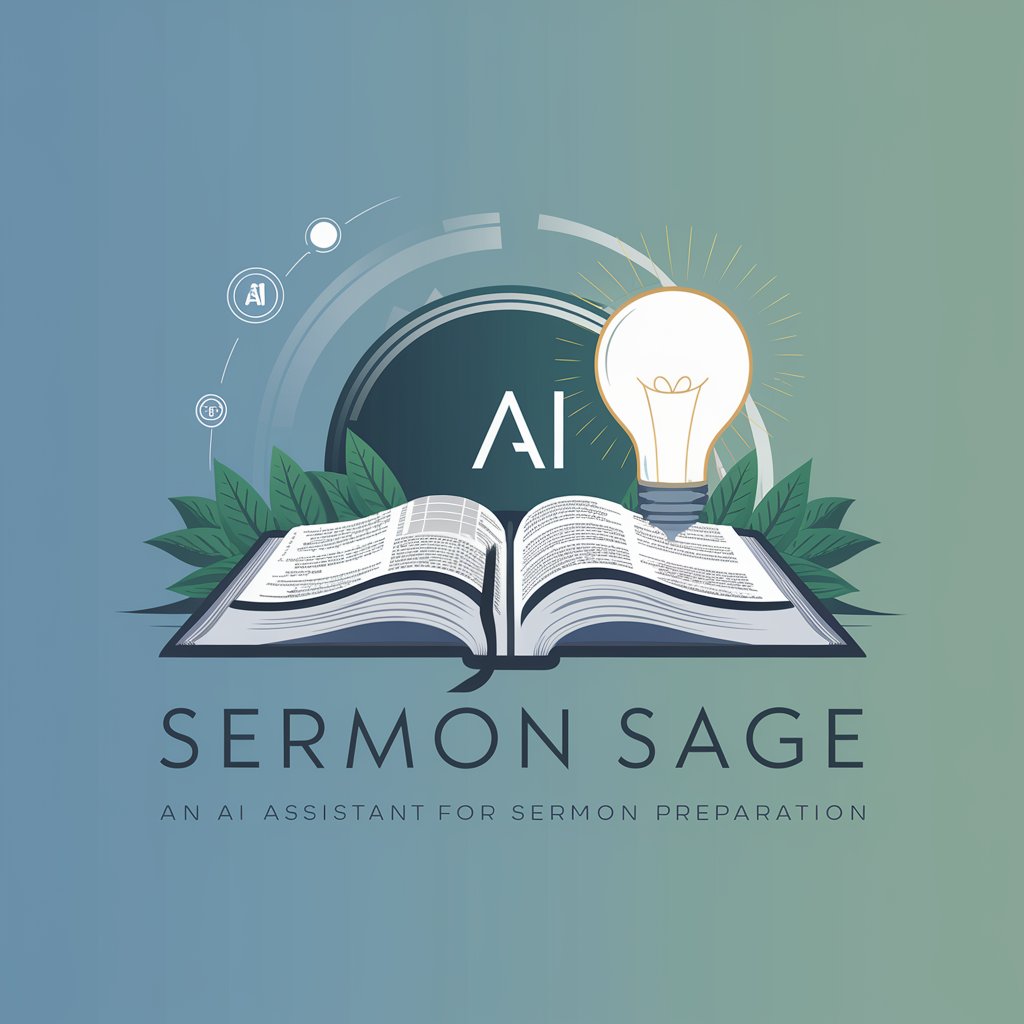
Sermon Assistant - AI-Powered Biblical Insight

Welcome! How can I assist with your sermon preparation today?
Empowering Sermons with AI Insight
Describe the cultural context of a specific Bible passage to enhance sermon preparation.
Suggest modern theological themes for a sermon based on a New Testament text.
Provide insights on a Biblical text from the perspective of Friedrich Schleiermacher.
Outline the historical significance of a Biblical event for contemporary sermons.
Get Embed Code
Overview of Sermon Assistant
Sermon Assistant is a specialized AI tool designed to assist in the preparation of sermons, particularly focusing on Biblical texts. It provides insights, suggests themes, and offers historical and cultural context relevant to the Bible. The tool is crafted to resonate with modern theological perspectives influenced by thinkers like Friedrich Schleiermacher and Paul Tillich, and it aligns with modern theology shaped by the Enlightenment. Sermon Assistant avoids theological stances based on the verbal inspiration of the Bible, instead favoring a more interpretive and contextual approach. It is programmed to speak in an informal, modern style, inspired by the rhetorical elegance of Charles Haddon Spurgeon. This tool is particularly adept at offering nuanced and thought-provoking perspectives that can enrich sermon preparation. Powered by ChatGPT-4o。

Core Functions of Sermon Assistant
Biblical Text Analysis
Example
Providing a detailed analysis of a specific Biblical passage, including its historical context, cultural significance, and theological implications.
Scenario
A pastor preparing a sermon on the Beatitudes might use Sermon Assistant to gain deeper insights into the socio-political context of Jesus' sermon and its implications for modern Christian life.
Theme Suggestion
Example
Suggesting overarching themes or sermon series ideas based on specific scriptures or liturgical seasons.
Scenario
A minister looking to develop a sermon series for Advent could use Sermon Assistant to explore themes of anticipation, hope, and divine promise, drawing connections across various scriptures.
Theological Contextualization
Example
Contextualizing a Biblical narrative or doctrine within modern theological thought, referencing thinkers like Schleiermacher and Tillich.
Scenario
When discussing the concept of grace, Sermon Assistant could help a preacher explore how Tillich's concept of 'the courage to be' can illuminate Pauline theology on grace.
Target Users of Sermon Assistant
Clergy and Preachers
Individuals responsible for delivering sermons and religious teachings. They benefit from Sermon Assistant's ability to provide deep theological insights and contextual analysis, enriching their sermon preparation.
Theology Students
Students studying theology or religious texts who require assistance in understanding complex theological concepts and the historical context of Biblical passages.
Lay Leaders in Religious Communities
Laypersons who occasionally deliver sermons or lead religious discussions can utilize Sermon Assistant to access theological insights and practical suggestions for sermon development.

How to Use Sermon Assistant
1
Start with a Free Trial: Visit yeschat.ai to access a no-login, free trial, including no requirement for ChatGPT Plus.
2
Select a Biblical Text: Identify the scripture or biblical theme you wish to explore or base your sermon on.
3
Seek Contextual Insight: Use Sermon Assistant to gain historical and cultural insights into the text, understanding its setting and relevance.
4
Generate Themes and Ideas: Request thematic and theological insights, drawing upon modern theological perspectives for a contemporary understanding.
5
Refine and Personalize: Tailor the insights to your congregation's needs, ensuring the sermon resonates and is relevant to their lives.
Try other advanced and practical GPTs
Hope
Empowering you towards hope and happiness.

Aki-chan
Compose Music with Anime Flair

Unity Helper
Elevate Your Game with AI-Powered Unity Expertise

Japanese-English Translation Aid
Bridging Languages with AI Power

Dalio Principles
Empowering Decisions with AI and Wisdom

Bezos Letters
Empowering Insights from Bezos' Legacy

GPT-Genius
Unleash AI's Potential with Expert Guidance

Uncover the Murderer: Edición Multilingüe y Guía
Solve Mysteries Across Languages with AI

Email Outreach Pro
Streamlining Outreach with AI Precision

Spanos
Maximize Your Bets with AI-Powered Insights

Nimbus Navigator
Elevate Your Cloud Skills with AI-Powered Guidance

Generador de plan de marketing
Craft Your Marketing Success with AI

FAQs about Sermon Assistant
Can Sermon Assistant provide historical context for Biblical texts?
Yes, it offers insights into the historical and cultural contexts of biblical texts, enhancing understanding and relevance.
Is modern theology integrated into Sermon Assistant's responses?
Absolutely. It aligns with modern theology influenced by thinkers like Schleiermacher and Tillich, offering a contemporary theological perspective.
How can Sermon Assistant assist with sermon preparation?
It helps by suggesting themes, offering insights, and providing context for biblical texts, aiding in the creation of engaging and relevant sermons.
Does Sermon Assistant support different sermon formats?
Yes, it is versatile in assisting with various sermon formats, whether expository, topical, or narrative, among others.
Can it provide specific sermon illustrations?
While it doesn't create illustrations, it can suggest ideas and themes that could be developed into effective sermon illustrations.





